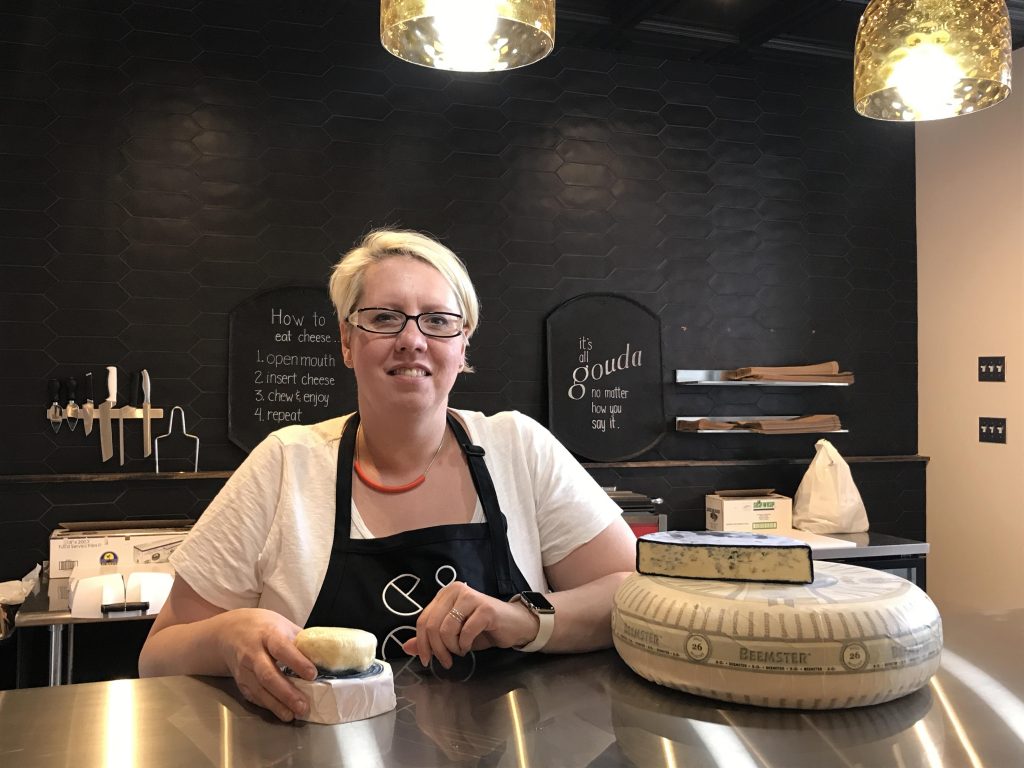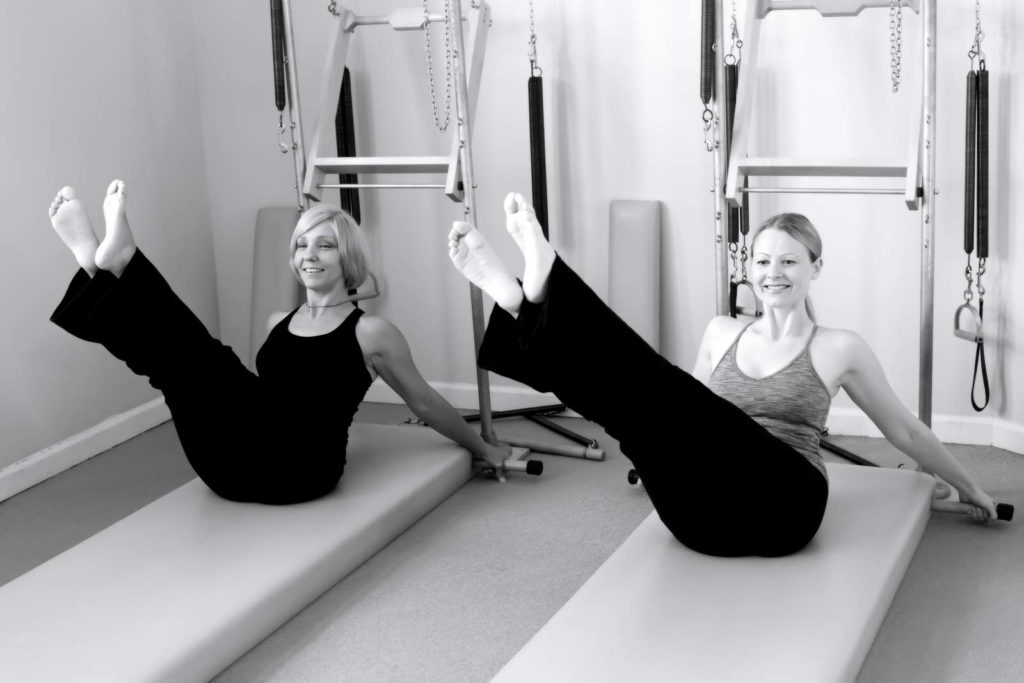For all the talks, posts, and podcasts about the importance of staying nimble and adapting an entrepreneurial mindset, the truth is, most organizations struggle with moments of big change.
We now see social distancing stretching markets, slowing processes, and disrupting normal channels of communication — making connecting personally not only more difficult, but ironically, far more important.
So how do organizations designed to operate at scale get personal and speak to the moment and need of customers in isolation? How do they communicate, adjust operations, plan and execute when business as usual goes out the window?
For answers, we’d be wise to reflect on the original entrepreneurs — the small business owners and local nonprofits of Main Street.
An entrepreneur operates a business, taking on greater than normal financial risk in order to do so. Risk. Somehow we forget about that in our talk of innovation.
But, as the saying goes, necessity is the mother of invention. So, if we want to be more entrepreneurial in this moment, we better be ready to take risks, innovate and adapt. And do it fast. All this leaves us wondering: how are small businesses adapting and innovating with new platforms, services, content, or approach? And what can larger organizations learn from them?

Jenn Mason is owner of the Boston-based Curds & Co., a fine cheese shop that offers classes at their brick-and-mortar stores and curates Curdbox, a monthly box subscription of quality cheeses for foodies. When Massachusetts state officials began issuing shelter-in-place orders, she knew it was critical for the survival of her business to respond quickly.
Within days she not only changed how her stores operated — shifting personnel, modifying inventory for shelf life, distancing as appropriate, and utilizing curb-side pick up and delivery for customers — she created a new online section to meet the rising need.
Mason’s revenue, 75% of which was previously earned through in-store sales, is now generated 90% online. Overnight her business model has flipped. Adaptation.
But she’s also begun adopting new platforms and creating new programs. Taking chances on things she’d previously sidelined. In short, she’s taking risks.
Mason and her team developed curdboxLIVE, a nationwide event streamed through Facebook Live that allows members to join in on live tastings and eat along with their own box delivered to their door. An early regional prototype, launched just a week after they went into crisis mode, was the company’s first foray into streaming on Facebook or any other platform, yet it was profitable and now represents an important new source of potential future revenue. In fact, she’s since done several more well-received events and plans to continue online events for both public and private groups.
Mason says she had always hoped to do an online class, combining her box memberships with special online classes to foster a more personal experience for members. What she calls “a cheese class in a box.” The spread of Covid-19 simply forced her hand.
She feels that in many ways the current crisis is opening doors for businesses willing to adapt. “Everyone is willing to try anything now,” Mason says. “Businesses are really ready to partner right now, and willing to fail. And that makes it really interesting.”
This is an important lesson for an organization of any size. The ideas you’ve put on hold and partnerships you’ve always wondered about may be ideal for this moment, possibly even leading to new sources of income that will endure after the pandemic has passed.
Now is the time for organizations to take risks. Disruption doesn’t mitigate risk, but the ecosystem it creates — a willingness to partner and think outside the box — sure does make taking risks more palatable.

Of course, not every business is going to find ways to grow right now. For Audrey Laurelton, owner of Equilibrium Pilates in Montclair, New Jersey, a suburb just outside New York City, nurturing current stakeholders and serving their needs will be success enough.
Her pilates studio offers clients a host of health and wellness programs, including classes, nutrition guidance, and physical therapy. But where some studios provide large classes, Equilibrium Pilates differentiator has always been a focus on one-to-one, personal service. Social distancing clearly threatens this hands-on, personalized approach.
When the governor of New Jersey called for the closing of non-essential business, Laurelton knew she had to come up with a plan or her business would be in jeopardy. Like millions around the country, she turned to the online meeting platform Zoom. And, for the first time, began to teach classes online. It wasn’t flawless.
Laurelton got an enterprise level Zoom account, and when she called their customer service late one evening for support, she was 60th in the queue. She never got through. Three days later, Zoom did reach her and with their help, she was up and running. She bought a simple out-of-the-box camera and light mounting system online, wrote an email to core clients and another for a larger blast announcing her shift to offering online pilates sessions.
Laurelton now teaches classes alone in her business studio. Her other instructors are teaching from their homes, converting bedrooms, living rooms, and basements to make-shift studio spaces. Along the way she’s learning both the limitations and surprising opportunities an online meeting platform offers. “I had to get used to describing things in reverse, which way in the camera is left and right,” she says with a laugh. The online nature of the classes has also meant Laurelton has to slow her process and modify how she teaches.“I can’t touch them to adjust a position now, so I have to slow things down and carefully talk them through what I want them to do,” she says.
Adaptation. Radical change of business model. New platforms.
In the three weeks since going online, new business has grown just 2% for her studio (not bad actually for an email marketing blast), but more importantly, she’s held on to nearly 80% of her core business. For Laurelton the next few months will be about survival. But beyond adapting to new platforms she’s innovating on the fly as well.
Recognizing that some may not have the internet bandwidth (or time in a crowded home) for a 60-minute class, she’s begun to record and package sessions of between 5 and 25 minutes. These packaged sessions are not only serving a valuable short-term need for many clients, they are useful as a marketing tool. And, when the crisis eases, Laurelton sees a real opportunity for marketing personalized, customizable sessions to clients who travel for business.
Again, finding opportunity as she innovates through disruption — that’s textbook crisis management. Clearly there is a long way to go, but by adapting quickly to a new platform and completely changing the way she does business, Laurelton’s been able to meet the needs of her clients and maybe even found some new products to market.
You may not be a cheese shop or a pilates studio, but the stories of these small business owners illustrate the pressing need right now for organizations at any size to adapt, adjust, reimagine our work, and consider new ways of partnering. Disruption is painful. But for those willing to take risks, it can represent real opportunity.
